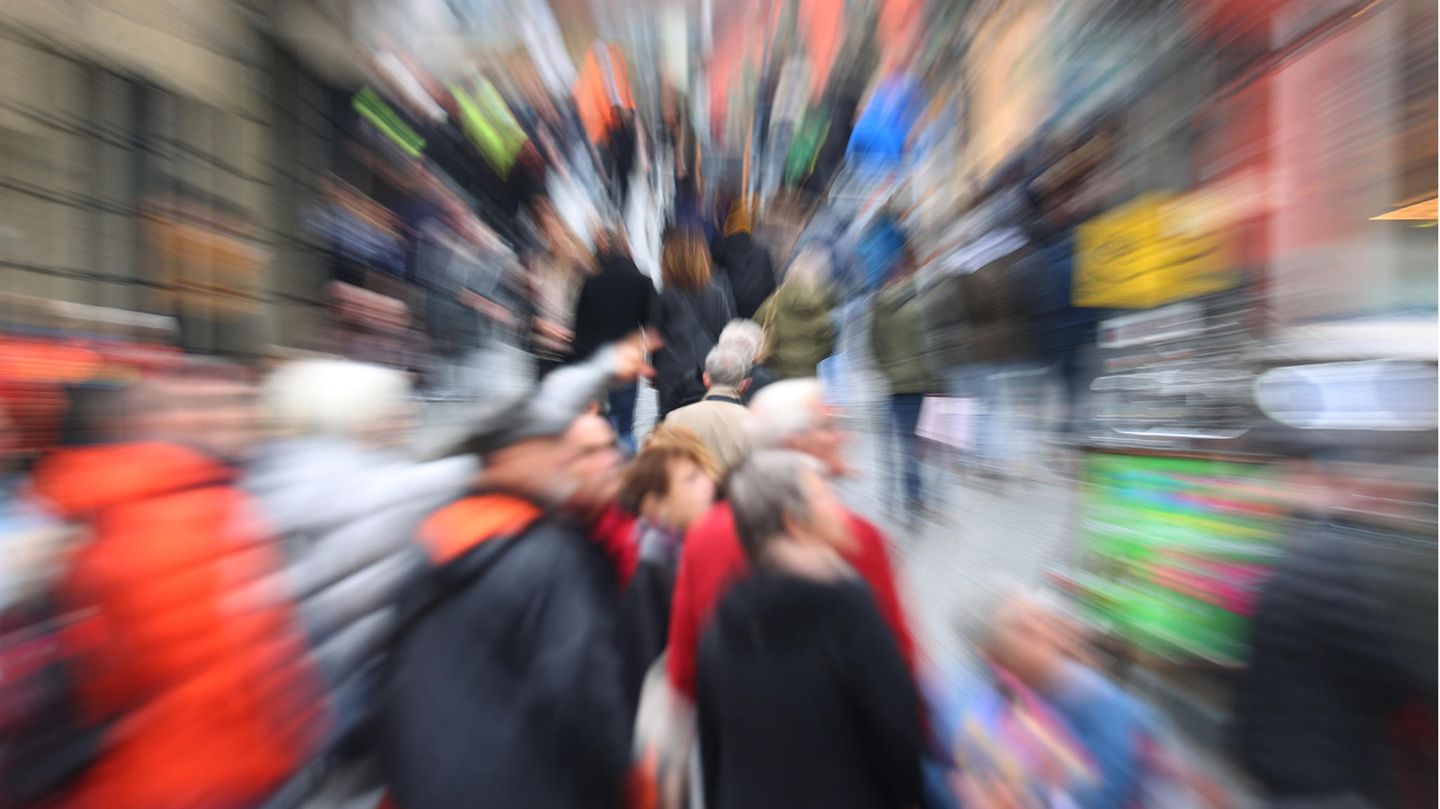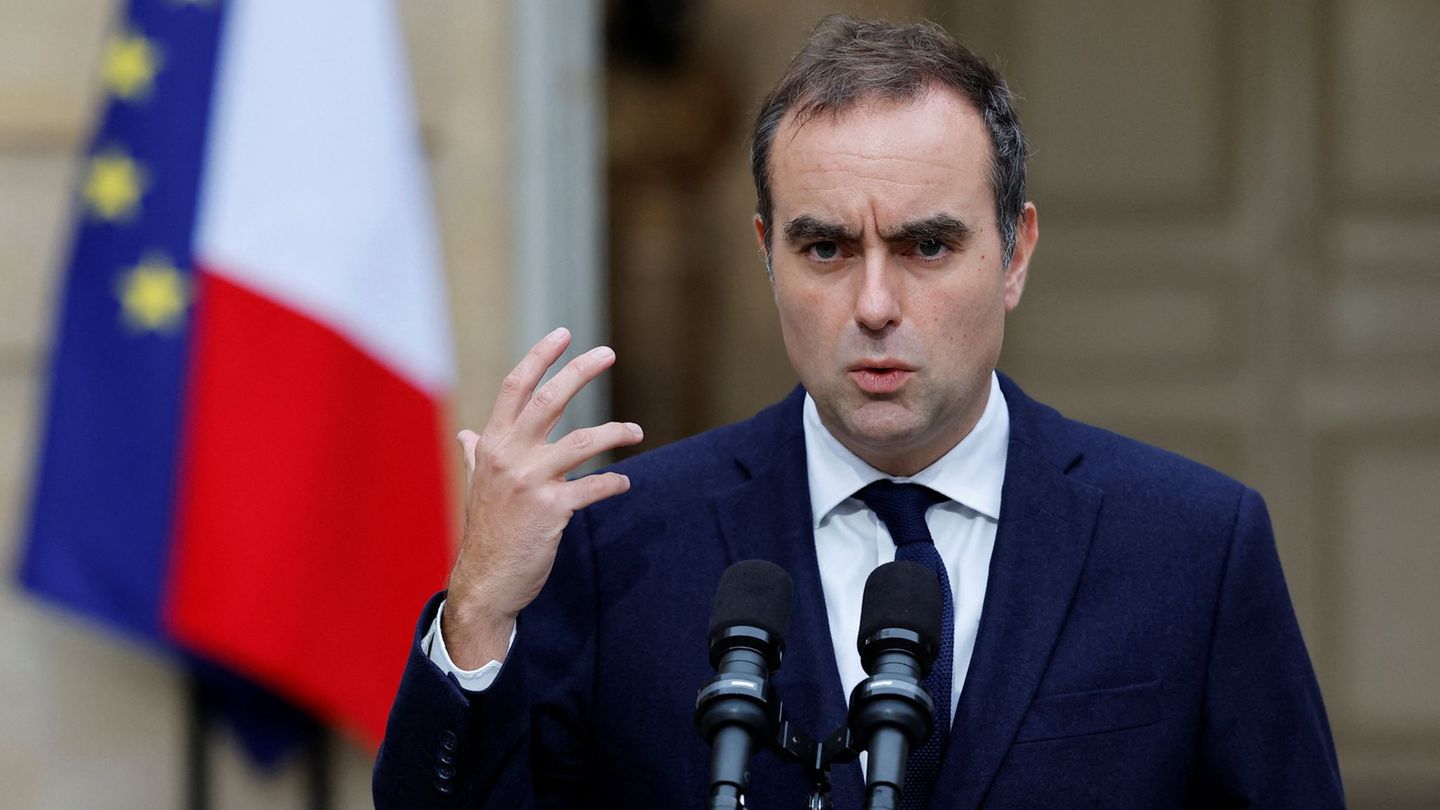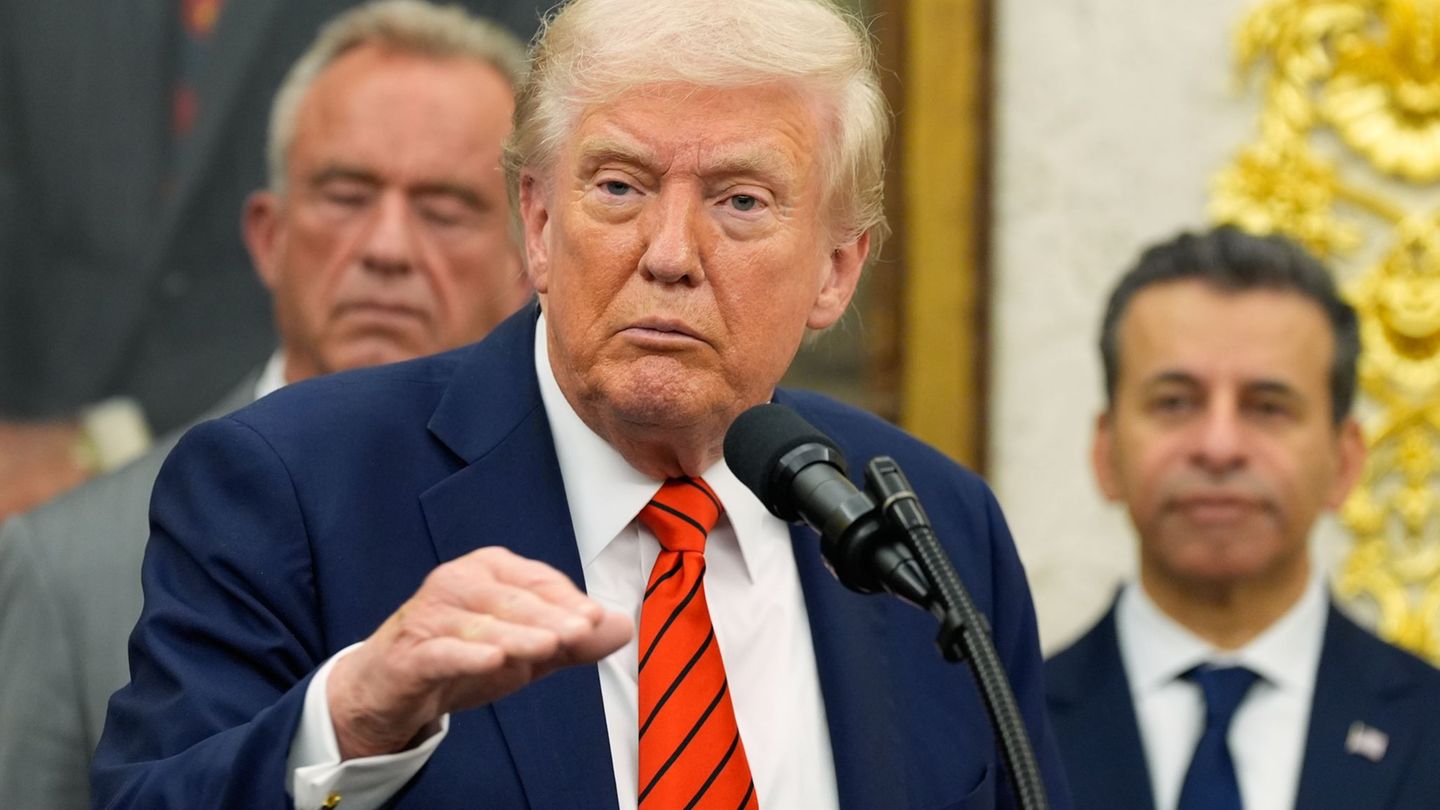The German government’s Corona Expert Council warned of an “explosive spread” of the Omikron variant of the corona virus. In the short term, the federal and state governments are setting a new corona summit. Are there any stricter restrictions coming soon?
The Omikron variant is currently of concern to politicians and experts. The number of infections is rising rapidly in Great Britain and Denmark – the Netherlands have already pulled the emergency brake with a lockdown. The rapid spread of the variant could soon result in stricter measures to protect against infection in Germany as well. On Tuesday, the federal and state governments discussed how to proceed – Chancellor Olaf Scholz (SPD) and North Rhine-Westphalia’s Prime Minister Hendrik Wüst (CDU) agreed as chairman of the Prime Minister’s Conference on Sunday evening. The Green health politician Janosch Dahmen brought a lockdown after the holidays into play.
“We have to get ahead of the Omikron wave with our measures. Our actions today will determine tomorrow’s pandemic situation,” said Dahmen of the German Press Agency. “Given the extremely high transferability of Omikron, we will probably not get around a lockdown after Christmas. One possible scenario would be a well-planned lockdown in early January.”
Expert advice: Omikron brings “a new dimension”
Federal Health Minister Karl Lauterbach ruled out a lockdown before Christmas on Sunday. When asked what about the time after the holidays, the SPD politician said on the Bild show “The Right Questions”: “I don’t think we will have a hard lockdown there either.” However, he wrote on Twitter that an offensive booster vaccination campaign should be carried out and “the measures to reduce contact should be tightened.”
The Federal Government’s new Corona Expert Council warned on Sunday that Omikron was bringing a “new dimension” to the pandemic. The experts already see a “need for action” in the coming days. “Effective nationwide coordinated countermeasures to control the infection process must be prepared, in particular well-planned and well-communicated contact restrictions,” the statement said. The current measures would also have to be continued “even more stringently”.
Omikron is characterized by a much stronger transferability and undermining existing immune protection, according to the experts. The variant infects significantly more people in a very short time and also includes those who have recovered and those who have been vaccinated more in the infection process: “This can lead to an explosive spread.”
Omikron could endanger critical infrastructure
In addition, the Expert Council warned: “If the spread of the Omikron variant in Germany continues, a relevant part of the population would be ill and / or in quarantine at the same time. This would put an extreme strain on the health system and the entire critical infrastructure of our country.” This would affect, among other things, hospitals, the police, fire brigades, rescue services, telecommunications, electricity and water supply and the corresponding logistics.
The federal-state consultations on Tuesday should focus on preparatory measures to protect the critical infrastructure – but also on further contact-reducing measures to protect the health system from an impending overload as a result of the Omikron wave. This was communicated by both sides after the agreement between Scholz and Wüst. In addition, an “emergency plan” should be adopted in order to keep the country running if a large number of people fall ill with the coronavirus. The Bundeswehr and the technical relief organization could provide support in an emergency. The continuation and acceleration of the booster vaccination campaign is also on the program.
“The Omicron variant calls for absolute vigilance,” said Wüst. He did not want to rule out that the contact restrictions will also apply to those who have been vaccinated and those who have recovered. “We should be careful to exclude anything,” he said on Monday in the ARD’s “Morgenmagazin”. It is already clear: “The big New Year’s Eve party cannot take place again this year.”
“Every additional, unnecessary contact is one too many”
The development of the Omikron variant shows “that we have to be very concerned about overloading our health system and ensuring basic public tasks,” said the deputy leader of the Greens in the Bundestag, Marie Klein-Schmeink, of “Welt”. “Therefore, further precautions urgently need to be taken in order to counteract as well as possible.” Should tightening be necessary, the SPD parliamentary group in the Bundestag is ready to take decisions at short notice, says the newspaper’s deputy chairwoman Dagmar Schmidt.
“Every additional, unnecessary contact is one too many. In the worst case we expect up to 700,000 new infections per day,” said Union parliamentary group vice Sepp Müller (CDU) of the “world”. That is why “a legal basis for a national lockdown” is now needed.
The general secretary of the German Society for Immunology, Carsten Watzl, told the “Augsburger Allgemeine” (Monday) that he “unfortunately sees a lockdown coming up that will affect us all”. “The first reports indicate that even after the booster, the protection against an omicron infection could only be around 75 percent, while it is well over 90 percent with Delta after the third vaccination.” That would mean that many more vaccinated people could become infected with Omicron, he said. “We will have to reduce the incidences, which are soaring at Omikron, very sharply, and we will not be able to do so now, as in this fourth wave, with booster vaccinations, but only again with distance and contact restrictions,” said Watzl.
Berlin’s Governing Mayor Müller: general lockdown unlikely
The President of the German Medical Association, Klaus Reinhardt, told the “Tagesspiegel”: “There is a risk that we will have to go into a new lockdown.” If the Omikron variant in Germany, despite the booster campaign, spreads as quickly as it is in England or the Netherlands, “further contact restrictions will probably be unavoidable”.
Berlin’s governing mayor Michael Müller (SPD) told the broadcasters RTL and ntv that it was becoming apparent that “the contact options will be reduced even at events”. Christmas celebrations in small groups with the family should be possible, but “there are no New Year’s Eve parties, there are no celebrations in a large group”. This “must be communicated now, and that will certainly take place on a massive scale in the next few days”.
He currently considers a general lockdown to be unlikely, said the outgoing head of government. Nevertheless, the measures now have to be sharpened: “The contact restrictions are not a lockdown. But I think we really have to do it again.”
Source From: Stern




